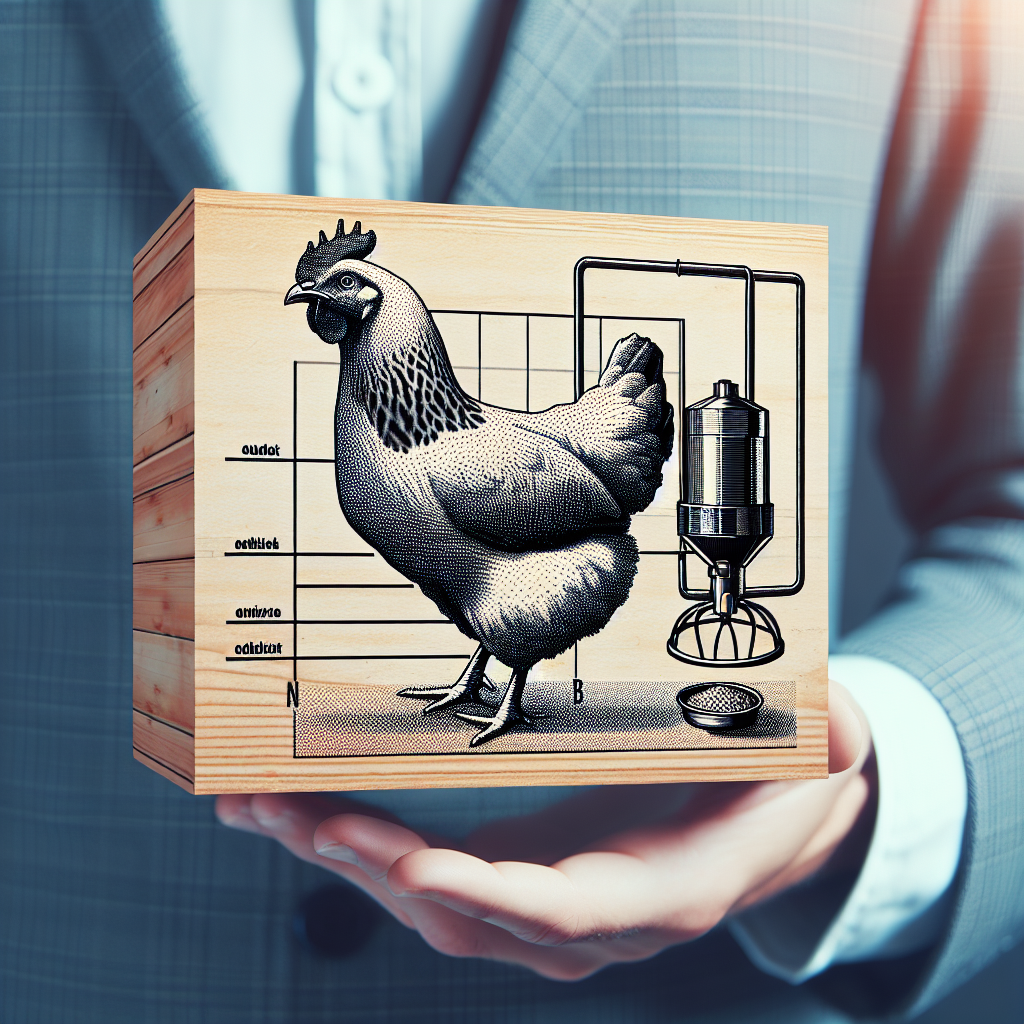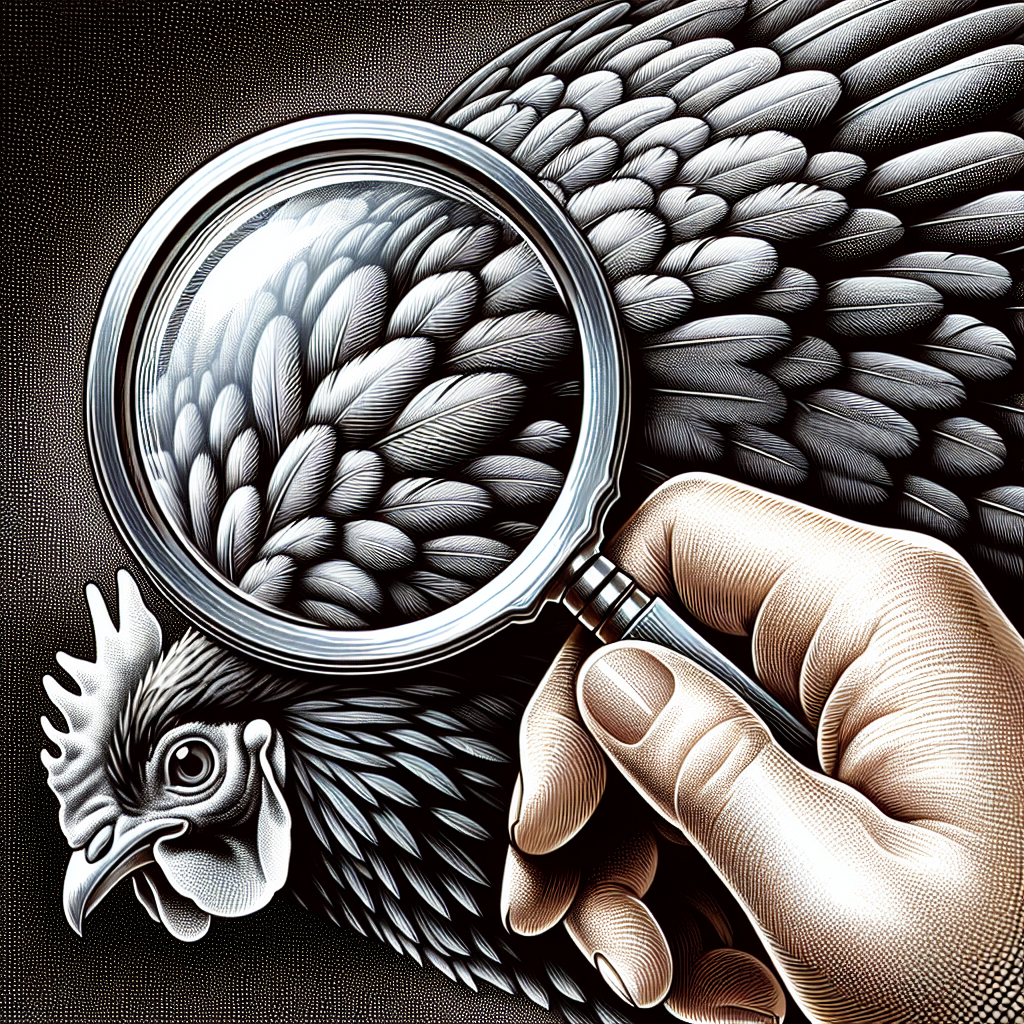Are you a poultry farmer looking for effective ways to manage your flock’s diet based on their age and production requirements? In this article, we will explore different strategies and considerations to ensure that every bird in your flock receives the right nutrition at the right time. By understanding the specific dietary needs of each age group and adjusting their feed accordingly, you can optimize their growth, health, and overall productivity. Let’s dive in and discover the key aspects of managing a flock’s diet for optimal results.
Nutritional Needs for Different Age Groups
Chick Diet
When it comes to feeding chicks, it is crucial to provide them with a nutritionally balanced diet to support their growth and development. A chick’s diet should consist of a high-quality starter feed that is specifically formulated to meet their nutritional requirements. This feed should be rich in essential nutrients such as proteins, vitamins, and minerals. Feeding chicks a proper diet from the start will help lay a solid foundation for their overall health and wellbeing.
Growing Poultry Diet
As your poultry flock transitions from chicks to growing birds, their nutritional needs will change as well. During this stage, a grower diet is ideal to support their continued development. This type of feed is formulated with higher protein levels to promote proper muscle and skeletal growth. Additionally, the grower diet should be rich in essential vitamins and minerals to support their overall health and immune function.
Laying Hen Diet
When your hens reach the point of lay, their nutritional needs shift towards supporting egg production. A laying hen diet should contain adequate levels of calcium to ensure strong eggshells and proper muscle function. Additionally, the feed should be balanced with protein, vitamins, and minerals to support overall egg production and the hen’s health. Providing a high-quality laying hen diet is essential for maximizing the productivity and longevity of your laying hens.
Broiler Diet
Broilers, which are bred for meat production, have specific nutritional requirements to support their rapid growth and efficient feed conversion. A broiler diet should be formulated with high levels of protein and energy to promote muscle development. It should also contain optimum levels of vitamins and minerals to support their overall health and immune function. By providing a well-balanced broiler diet, you can help ensure optimal growth and achieve the desired meat quality.
Factors to Consider in Managing Flock’s Diet
Age
One of the key factors to consider when managing a flock’s diet is their age. Different age groups have varying nutritional requirements to support their growth and development. It is essential to provide age-appropriate feeds to meet their specific needs.
Production Requirements
The production goals you have for your flock will also influence their diet. Whether you are focusing on egg production, meat production, or both, you need to tailor their diet accordingly. Meeting the nutritional requirements specific to their production requirements will help optimize performance and overall flock health.
Feed Quality
The quality of the feed you provide is crucial to meeting your flock’s nutritional needs. Ensure that you source feed from reputable suppliers who produce high-quality and properly formulated feeds. Poor feed quality can result in nutritional deficiencies or imbalances, leading to suboptimal flock performance and health issues.
Feed Formulation
Proper feed formulation is another essential factor in managing your flock’s diet. Depending on the age and production requirements of your flock, the feed must be carefully formulated to provide the correct balance of proteins, carbohydrates, fats, vitamins, and minerals. Consult with a poultry nutritionist or use commercially available feed formulas to ensure your flock receives a nutritionally balanced diet.
Feeding Strategies for Different Age Groups
Starter Diet
For chicks, a starter diet should be provided from day one until they are approximately 4 to 6 weeks old. This feed is typically finely ground to ensure easy consumption and is formulated to support optimal growth and development during this critical stage. The starter diet should supply adequate protein, vitamins, and minerals to lay the foundation for healthy growth.
Grower Diet
Once chicks transition to the growing stage, usually around 4 to 6 weeks of age, they require a grower diet. This feed has a slightly lower protein content than the starter diet but is still higher than what would be provided to mature birds. The grower diet is formulated to support continued growth and development while also preparing the birds for their eventual egg-laying or meat production stages.
Finisher Diet
When birds reach a certain age or weight, usually around 14 to 16 weeks old or when they reach the desired market weight, they should be transitioned to a finisher diet. This feed is lower in protein content and higher in energy, aimed at optimizing meat production or maintaining proper body condition for laying hens. The finisher diet helps birds reach their full potential in terms of size and meat quality.
Feeding Strategies for Laying Hens
Maintenance Diet
Outside of their peak egg-laying period, laying hens require a maintenance diet. This diet provides the necessary nutrients to support their overall health and body condition. It is lower in protein compared to the layer diet but still contains enough essential nutrients to keep the hens in good condition.
Layer Diet
When your hens start laying eggs, they need a layer diet rich in calcium to support strong eggshells while meeting their increased nutritional demands. The layer diet should also contain adequate levels of protein, vitamins, and minerals to support optimal egg production and overall hen health. A well-formulated layer feed is designed to provide the specific nutrients needed to maximize egg production and quality.
Supplemental Feeding
In addition to the layer diet, it is common practice to provide laying hens with supplemental feed sources. This may include offering crushed oyster shells or other calcium-rich sources separately to ensure adequate calcium intake for eggshell formation. Additionally, providing nutrient-rich treats like fruits and vegetables can offer enrichment and additional nutrients to support your hens’ overall health.
Feeding Strategies for Broilers
Brooding Period
During the brooding period, which typically lasts for the first few weeks, broilers require a specific feeding strategy. Broiler starter feeds, formulated to promote rapid growth and development, are often provided in crumble form to aid in consumption. These feeds are carefully balanced to provide the necessary nutrients for optimal broiler development during this vital stage.
Grow-Out Period
As broilers progress through the grow-out period, their feed composition and feeding strategies may change. Broiler grower feeds help maintain steady growth while focusing on optimizing meat production. The feed formulations during this stage are often adjusted to meet the specific nutritional requirements for efficient feed conversion and desirable meat quality.
Monitoring and Adjusting the Diet
Body Condition Score
Regularly monitoring your flock’s body condition score is vital to ensure they are receiving an appropriate diet. Aiming for a moderate body condition score allows for optimal production and health. If you notice changes in body condition, such as excessive weight gain or loss, it may be necessary to adjust the diet to maintain optimal health and performance.
Egg Quality
For laying hens, closely monitoring egg quality is essential. Poor egg quality, such as thin or weak shells, may indicate a deficiency in calcium or other essential nutrients. Adjusting the diet to meet the hens’ specific nutritional needs can help improve egg quality and overall flock productivity.
Growth Rate
Monitoring the growth rate of your birds is crucial, especially for broilers. A consistent and healthy growth rate is indicative of a well-balanced diet. If growth rates are not in line with expectations, adjustments to the diet may be necessary to ensure optimal growth and meat quality.
Feed Conversion Ratio
Keeping an eye on the feed conversion ratio (FCR) helps determine the efficiency of feed utilization by your birds. A lower FCR indicates more efficient feed conversion, which can be achieved through a well-formulated diet. Regularly evaluating FCR can guide you in making necessary adjustments to optimize feed utilization and overall flock performance.
Common Nutritional Deficiencies and Solutions
Calcium Deficiency
Calcium deficiency is a common issue, particularly in laying hens. It can lead to thin or weak eggshells, reduced shell quality, and other health problems. Providing a calcium-rich layer diet and supplemental calcium sources, such as crushed oyster shells, can help prevent and correct calcium deficiencies.
Vitamin Deficiencies
Vitamin deficiencies can occur in any flock, leading to various health issues. Offering a nutritionally balanced diet that includes a diverse range of fruits, vegetables, and grains can help prevent vitamin deficiencies. Additionally, providing appropriate vitamin supplements or fortified feeds can address any deficiencies that may arise.
Protein Deficiency
Protein deficiency can stunt growth, decrease egg production, and weaken the overall health of your flock, especially in growing birds and laying hens. Ensuring that feeds are formulated with adequate protein levels is crucial for preventing protein deficiencies. Utilizing high-quality protein sources and working with a poultry nutritionist can help correct and prevent such deficiencies.
Importance of Providing Clean Water
Water Requirements
Clean and fresh water is essential for the overall health and performance of your flock. Poultry requires an adequate supply of water for proper digestion, temperature regulation, and overall hydration. It is crucial to ensure that there is always a clean source of water available for your flock.
Water Quality
The quality of water provided to your flock can impact their health and performance. Contaminated water, high in levels of minerals, chemicals, or pathogens, can cause various issues, such as decreased feed intake, poor growth, and increased susceptibility to diseases. Regularly testing the water quality and providing clean and treated water can help prevent potential health problems.
Managing Feed Storage and Handling
Storage Conditions
Proper feed storage is vital to maintain feed quality and prevent spoilage. Feed should be stored in a dry and cool area away from direct sunlight to prevent nutrient degradation and the growth of molds or pests. Additionally, utilizing proper storage containers and regularly cleaning them can help maintain the integrity of the feed.
Feed Spoilage
Feed spoilage can occur due to exposure to moisture, heat, pests, or poor storage conditions. Spoiled feed can lead to nutritional deficiencies or the growth of harmful bacteria that can negatively impact your flock’s health. Regularly inspecting and properly managing feed storage can help prevent spoilage and ensure the feed’s quality and safety.
Rodent Control
Rodents can cause significant damage to feed storage areas and contaminate the feed. Implementing effective rodent control measures is essential to prevent feed loss and maintain flock health. Regularly inspecting storage areas, sealing any potential entry points, and using appropriate rodent control methods can help protect your feed supply from contamination.
Consulting an Expert
Veterinarian
If you are facing any health or management issues with your flock, consulting a veterinarian is highly recommended. Veterinarians with experience in poultry health can help diagnose and treat diseases, establish proper vaccination protocols, and provide guidance on overall flock management, including diet and nutrition.
Poultry Nutritionist
Working with a poultry nutritionist can greatly benefit your flock’s diet management. These professionals have expertise in formulating nutritionally balanced diets based on your flock’s specific needs and production goals. They can provide valuable insights into optimizing diet formulations, managing nutritional deficiencies, and maximizing flock performance.
Managing a flock’s diet based on age and production requirements is crucial for maintaining their health, productivity, and overall wellbeing. By understanding the nutritional needs of different age groups and considering factors such as age, production requirements, feed quality, and feed formulation, you can tailor the diet to support your flock’s specific needs. Monitoring and adjusting the diet, addressing common nutritional deficiencies, providing clean water, and implementing proper feed storage and handling practices further contribute to the overall success of your flock. When faced with any challenges or uncertainties, consulting with a veterinarian or poultry nutritionist ensures professional guidance and support to help you navigate the complexities of managing your flock’s diet effectively.




